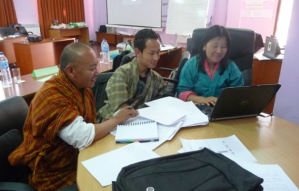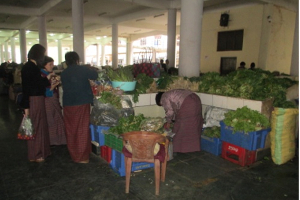

Social Research in Bhutan
May 2, 2014

Twenty researchers from Bhutan recently participated in a training course to improve their social research skills. The researchers were working in a wide range of areas, from developing disease resistant vegetables, increasing dairy production, reducing human-wildlife conflict, improving aquaculture, marketing organic products, and even testing edible orchids.
Social research is essential to assess potential livelihood impacts from changing practices or products, but is often overlooked in training of agricultural scientists. Participants were encouraged to think beyond production and economic benefits from their research to broader livelihood issues affecting farming families.

The course covered how to collect, analyse and present qualitative data, as well as human ethics when researching people. Participants learned how to develop research questions that explore positive and negative social impacts from an natural resource issue or from introducing new practices.
Drs Joanne Millar and Rosemary Black from Charles Sturt University partnered with the Council for Renewable Resources Research in Bhutan to deliver the five day course in Thimpu from 7 to 11 April 2014.




 0
0